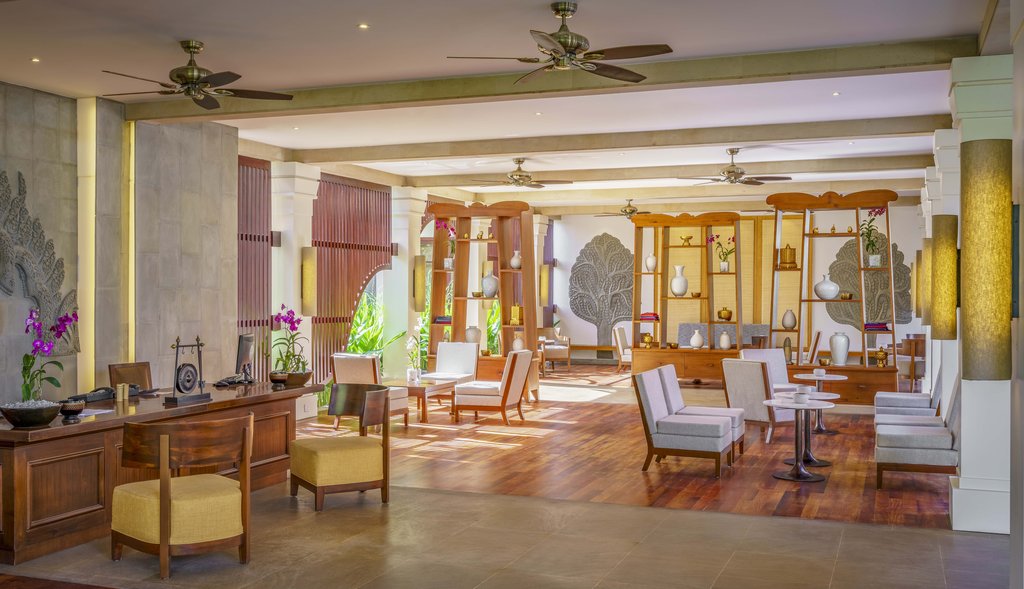Cambodia’s vibrant culture comes alive throughout the year with a dazzling array of festivals. From joyous celebrations to solemn observances, each event offers a unique window into the heart and soul of this captivating country.
Choul Chnam Thmey
Welcome the traditional Cambodian New Year, Choul Chnam Thmey, and experience a joyful nationwide celebration. This three-day extravaganza in mid-April coincides with the Angkor Sankranta Festival in Siem Reap, making it the perfect time to visit Angkor Wat within easy reach of properties like Anantara Angkor Resort. Experience the local New Year and witness traditional ceremonies, water blessings, and colourful parades bursting with colour and music.
Bon Om Touk
Experience the dynamic energy of the Cambodian Water Festival or Bon Om Touk in October or early November. This annual event, mainly held in Phnom Penh marks the end of the rainy season and is known for its heart-pounding Pirogue longboat races on the Tonle Sap River. The festival comes alive with vibrant music, captivating dance performances, and delectable local cuisine – a feast for all senses! Meanwhile, those staying at a luxury hotel in Siem Reap can also enjoy this festival in Angkor with more festivities in store.
Vesak Bochea
Vesak Bochea, or Visak Bochea, honours the life of Lord Buddha. Devout Buddhists gather at temples nationwide on the full moon of the sixth lunar month, usually in April or May. This solemn occasion celebrates the Buddha’s birth, enlightenment, and passing into Nirvana. Participate in temple ceremonies, observe candlelit processions, and join in helping the less fortunate. Be prepared to also experience the profound sense of peace that permeates the air.
Pchum Ben
Pchum Ben, also known as Ancestors’ Day, is a poignant 15-day festival observed throughout Cambodia, usually in September or October. The locals believe the spirits of their ancestors descend upon Earth during this time. Families gather to offer food and prayers at temples, seeking merit for their loved ones in the afterlife. Witness the preparation of elaborate meals and see the reverence with which Cambodians honour their ancestors and elders.













